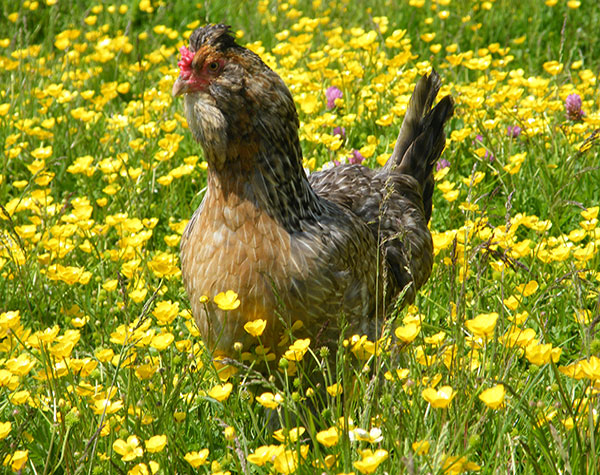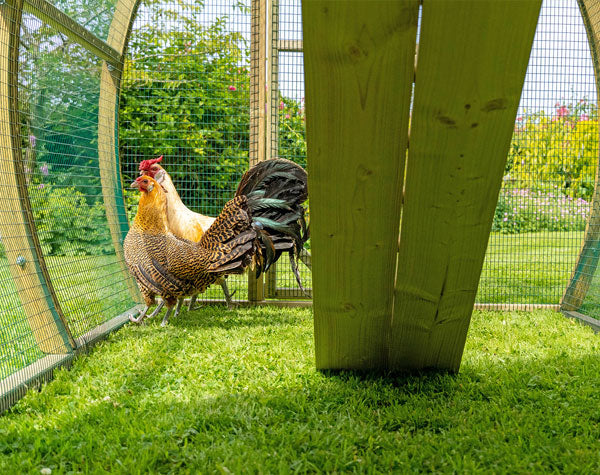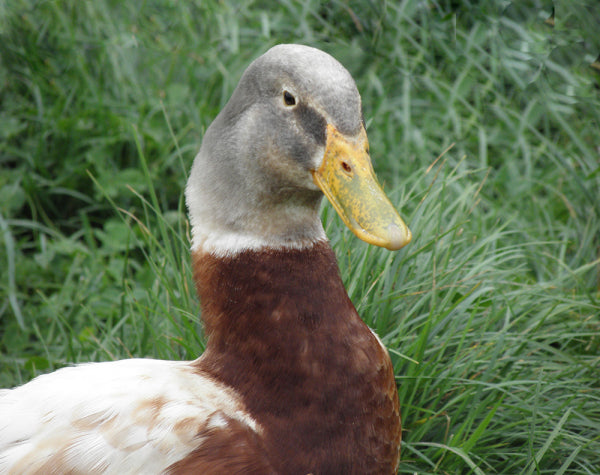12 Dos and Don'ts of Keeping Chickens
Some seasoned poultry keepers may not completely agree with this list, and some will say 'well, for goodness sake, that's just common sense'. But, after the success and popularity of our Flyte so Fancy Health Checkup Chart it was suggested, by many of you, that we put a few basic chicken keeping 'rules' in a list.
This we have put together from the most common questions we receive on our Advice line.
12 THINGS TO DO ...

DO collect eggs regularly to avoid egg eating and broodiness, at least twice a day if you can.

DO make sure your birds always have clean water, so keep it unfrozen in winter and don't allow algae build-up in summer. Keep it free of debris and poo.

DO give them access to layers pellets in a feeder all the time, mixed corn is an afternoon treat.

DO check the house regularly for Red Mite particularly the perch ends - with a torch is best.

DO clean the house regularly once a week at least. It is then less of a smelly onerous chore. Disinfect the house once a month with a poultry disinfectant.

DO make sure the perches in the house are higher than the nest boxes to prevent your birds from sleeping in the nest boxes (it makes them, and their eggs, dirty).

DO a regular check of their poo and learn the signs of worms or coccidiosis.

DO ensure adequate ventilation in the house to prevent respiratory diseases and suffocation. More chickens die from poorly ventilated houses than from draughts (which they also do not like) but poor ventilation leads to condensation and mould spores, especially in plastic-type hen houses.

DO enrich their run area with perches for example, to prevent boredom and also give them a draught-free sheltered area for protection from the wind and from the sun.

DO make sure your children wash their hands thoroughly after handling the eggs or birds.

DO worm your birds regularly either with Flubendazole twice a year or, a herbal remedy like Verm-X once a month.

DO check the birds regularly for lice at the base of the feathers and use a louse powder or Diatomaceous Earth powder on them and in the house.
12 THINGS YOU SHOULDN'T DO ...

DON'T overfeed with treats like mealworms, pasta, sweetcorn, garden bird seed, etc. You can make them fat and ill.

DON'T use hay for bedding, it breeds mould spores when damp and although straw is ok, be aware that used in the henhouse it can harbour red mite due to its tubular nature. Chopped Hemp Bedding is much more favoured these days.

DON'T heat your henhouse in winter. Your girls will be fine with their feathery coats and a higher carbohydrate diet. Hens cannot adjust their bodies to rapid changes in temperature like humans can so you would be potentially killing them with kindness.

DON'T introduce one new bird into your flock - she will be bullied mercilessly. Ideally, you should add say, 3 hens to 3 hens. If you have a much larger flock then say, 6 hens to 12 hens.

DON'T allow their run area to turn to mud. This is very unhealthy for them, it breeds harmful bacteria and parasites. Use a hardwood woodchip to keep their run clean.

DON'T feed them cat or dog food (even though they love it) as this generally contains chicken and you don't want them to turn into cannibals do you?

DON'T feed them too much sweetcorn or sunflower hearts as it upsets their digestive system and gives them yellow runny poo. Keep only as a small treat once a week if you wish. Don't feed them peanuts, rapeseed, nightshade family, rhubarb, pea family foliage - all are toxic to poultry.

DON'T soak soiled eggs in detergent or plain water to clean them as bacteria can be drawn into the egg through the porous shell. Newly laid eggs are porous but older eggs are less porous which is why it is best to only make boiled eggs when they are several days old. Rinse under running water or use a proprietary Egg Wash.

DON'T allow spilled food to remain on the ground as it encourages rats.

DON'T use household cleaners and disinfectants, such as washing up liquid or floor cleaners, for the house and utensils. Use only products that are animal safe and poultry specific.

DON'T put feeders and drinkers in the henhouse (if at all possible) as any spilled food will encourage bacteria and the birds will be scratching in dirty litter. Spilled water encourages damp litter which can breed coccidia parasites and can raise the humidity of the house. They do not need food and water overnight.

DON'T believe that those cute-looking foxes will not kill your chickens given the slightest opportunity. You only have to forget to close them at night once and, whether urban or rural, a fox loves a nice warm chicken dinner. There are other poultry predators to look out for too.
- - - -
Dos and Don'ts ©Flyte so Fancy 2017. Author: Anne Weymouth. Reproduction of part or all of this text is only possible with the express permission of Flyte so Fancy Ltd.



